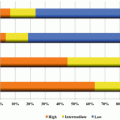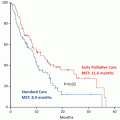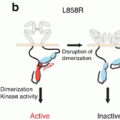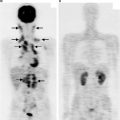© Springer Science+Business Media Singapore 2017
Yuichi Takiguchi (ed.)Molecular Targeted Therapy of Lung Cancer10.1007/978-981-10-2002-5_1111. ALK Mutant
(1)
Division of Pulmonary Medicine, Graduate School of Medicine, Nippon Medical School, 1-1-5 Sendagi, Bunkyo-ku, Tokyo 113-8602, Japan
Abstract
Anaplastic lymphoma tyrosine kinase (ALK) inhibitors have strong antitumor effects in patients with non-small cell lung cancer (NSCLC) with ALK fusion gene. The ALK inhibitors crizotinib, ceritinib, and alectinib were developed. Companion diagnostic and therapeutic agents for specific ALK inhibition have been simultaneously approved, but this is causing severe inconvenience in clinical practice for diagnosing ALK-positive lung cancer.
The therapeutic strategy for the patients is mainly by molecularly targeted therapy. The current status of ALK inhibitors and specificity of biomarkers in ALK-positive lung cancer are reviewed in this study. In summary, there are many arguments relating to the appropriate use of crizotinib, ceritinib, or alectinib as the situation demands and regarding which agent to use first. Many clinicians question the limitations of companion diagnostics and therapeutic agents; a more flexible response will be expected in order to accurately diagnose and provide proper treatment of ALK-positive lung cancer.
Keywords
Alk inhibitorMolecular diagnosisMolecular targeting11.1 Introduction
Anaplastic lymphoma tyrosine kinase (ALK) inhibitors produce strong antitumor effects in patients with non-small cell lung cancer (NSCLC) who test positive for the ALK fusion gene [1–3]. Development of the ALK inhibitors crizotinib, ceritinib, and alectinib has raised issues on the future use of ALK inhibitors in general.
The use of fluorescence in situ hybridization (FISH), immunohistochemistry (IHC), and reverse transcription-polymerase chain reaction (RT-PCR) as laboratory procedures for diagnosing ALK-positive lung cancer requires an organized diagnostic algorithm. In addition, companion diagnostic and therapeutic agents for specific ALK inhibition have been simultaneously approved, but this is causing severe inconvenience in clinical practice.
The therapeutic strategy whereby patients with a driver mutation receive the corresponding molecularly targeted therapy is the same as that used in epidermal growth factor receptor (EGFR) mutation-positive lung cancer. However, because of the difficulty of fusion gene detection, the relationship between companion diagnostics and ALK inhibitors, etc., there are specificities and issues not shared by EGFR-positive lung cancer in terms of ALK-positive lung cancer treatment.
The current status of ALK inhibitors and specificity of biomarkers in ALK-positive lung cancer are reviewed in this study.
11.2 The Guidelines
In 2011, the US Food and Drug Administration (FDA) granted approval for crizotinib as a therapeutic agent for ALK-positive NSCLC, and the Japanese government approved the manufacture and sale of this drug in 2012. In the PROFILE 1007 trial, progression-free survival (PFS) and response rate (RR) in patients previously treated for ALK fusion-positive NSCLC were 7.7 months and 65 %, respectively [1]. PFS and RR in treatment-naïve patients with ALK fusion-positive NSCLC were 10.9 months and 74 %, respectively, in the PROFILE 1014 trial. The ALK/MET/ROS1 inhibitor crizotinib showed a significant improvement in PFS compared with that of standard chemotherapy in the same trial [2]. Reported adverse events were visual disorders, diarrhea, nausea, an increased aspartate aminotransferase/alanine aminotransferase (AST/ALT) ratio, etc. These results indicate that crizotinib should be given in the early stage of treatment, at least up to the point of second-line treatment for patients with ALK-positive advanced NSCLC.
The second-generation ALK inhibitor alectinib selectively functions by fusing ALK gene, and efficacy of this agent has been demonstrated in crizotinib-resistant tumors harboring the L1196M and C1156Y gatekeeper mutations in vitro. When a phase I/II trial (AF-001JP) with alectinib in treatment-naïve patients with ALK-positive advanced NSCLC was conducted in Japan, the RR was 93.5 % [3]. Observed grade 3 or higher adverse reactions were neutropenia (4 %) and increased levels of serum bilirubin (2 %), ALT (2 %), and creatine phosphokinase (CPK, 2 %), indicating a mild incidence of adverse events [3]. The Japanese government approved the manufacture and sale of this drug in July 2014 based on results from this clinical trial. Ceritinib (also called LDK378), another second-generation ALK inhibitor, has more potent ALK inhibitory activity against crizotinib-resistant ALK-positive NSCLC, also confirming an antitumor effect (RR: 56 %). An application for ceritinib was approved by the Japanese government after the FDA approval in April 2014 [4].
The challenge with a diagnostic approach to the ALK fusion gene is the difficulty with detection, because the site of mutation is not confined as with EGFR gene mutation. Attention must be paid to the diagnosis due to advantages and disadvantages of FISH, IHC, or RT-PCR. The Biomarker Committee of the Japan Lung Cancer Society has issued guidelines for genetic testing for the ALK fusion gene in December 2011, and it is currently recommended that ALK-positive results should be detectable by as many laboratory procedures (two or more) as possible [5]. However, it is difficult to perform such procedures in every lung cancer patient whose tissue specimens may be difficult to obtain. Achievement of a reliable diagnosis in every patient is contributing to the establishment of a robust methodology. In verification of ALK testing results from 2337 specimens performed by Pfizer Inc., inconsistency has been reported between FISH and IHC results, particularly many FISH-positive and IHC-negative patterns with low RR. Yatabe performed reanalysis with 14 patients who showed inconsistency between FISH and highly sensitive IHC results, and as a result, RRs in FISH-positive ALK and IHC-positive ALK were 20 % and 50 %, respectively [6]. A previous clinical trial with crizotinib reported that RR was approximately 60 % in patients assessed on the basis of FISH positivity alone, but when RR was assessed along with IHC and RT-PCR in FISH-positive patients, RR reportedly exceeded 80 % [7]. On the other hand, the AF-001JP trial with alectinib was conducted in Japan by considering “FISH positive and IHC positive” or “RT-PCR positive” to indicate ALK fusion-positive results and showed an extremely good RR (93.5 %) [3].
Stay updated, free articles. Join our Telegram channel

Full access? Get Clinical Tree







